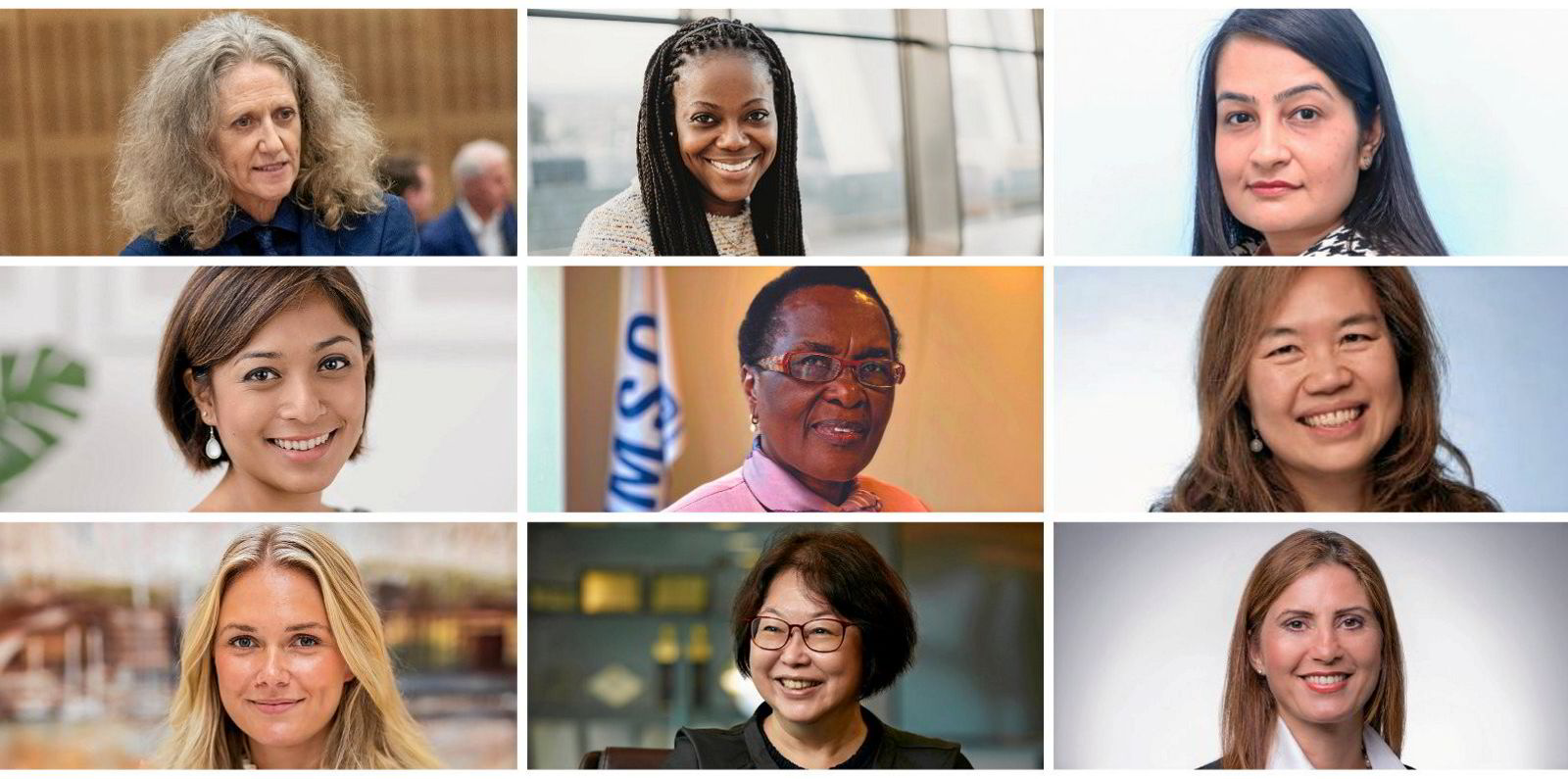Women in shipping have told TradeWinds there is a clear and pressing need for greater visibility of female industry leaders but have said that the sector is changing.
Today is International Women’s Day, for which this year’s theme is ‘inspiring inclusion’.
TradeWinds asked women from across shipping how inclusive they think the industry is and what can be done to improve it.
As well as boosting the visibility of women in senior positions, respondents told TradeWinds initiatives such as mentoring would help make shipping a more inclusive place to work.
But many acknowledged that there is still some way to go and a key shift in attitude is still required to help the sector attract and retain women into fulfilling and long-lasting shipping careers.
——————
Aleksandra Cabaj, director and head of sale and purchase, Costamare
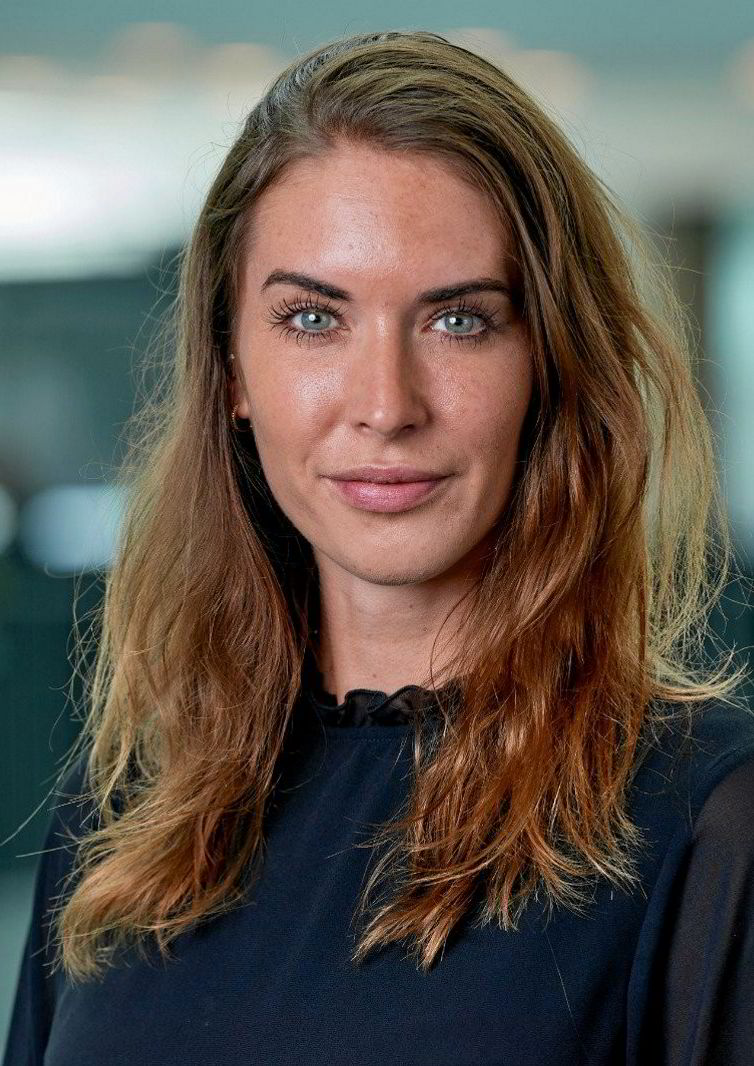
“The shipping industry has come far, but we are not there yet. Throughout my career, some of the sharpest, most dedicated and hardworking people I have met and worked with are women.
“I am of the strong belief that empowered women are some of the biggest assets a company can have. Not only do they empower other women, but they also bring a unique energy that galvanizes the movement to break old-school patterns of the industry and foster further inclusiveness.
“My advice to companies is to enable women to promote your business, your company and your industry — and inspire a better, more inclusive culture in shipping.”
——————
Louise Tricoire, vice president, TotalEnergies Marine Fuels
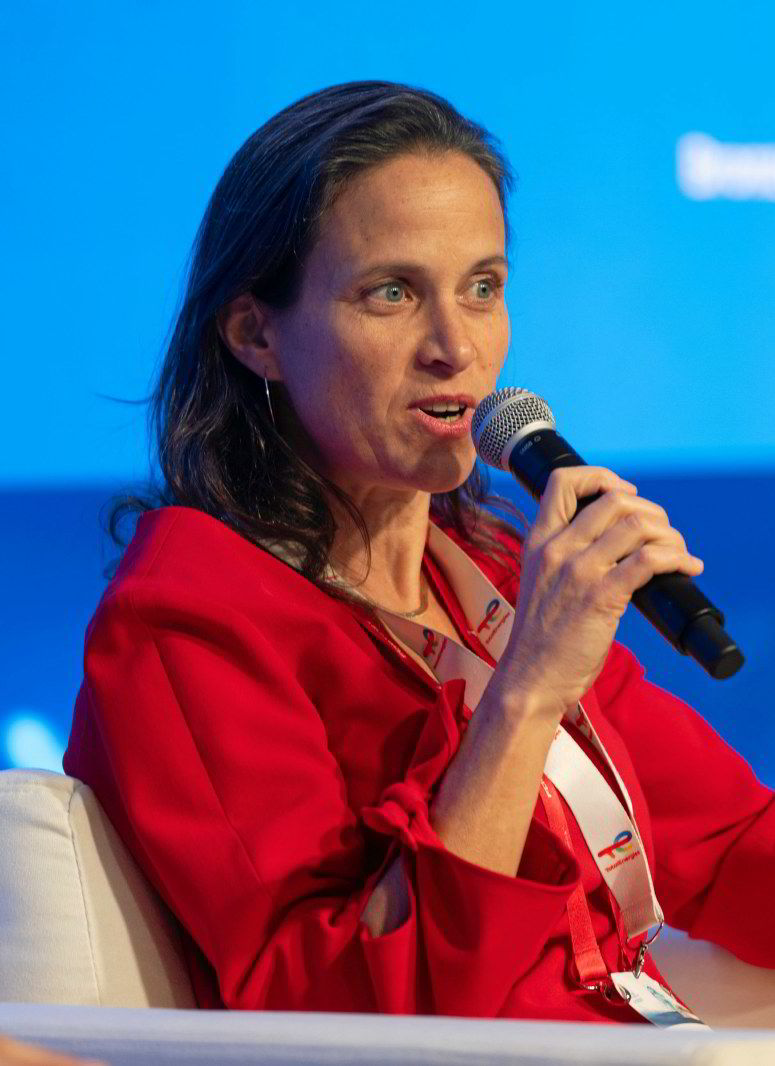
“We can’t avoid the hard truth that women account for just 1.2% of the world’s seafarers, 10% of the bunkering industry and 30% of the broader global shipping workforce. There is a lot more that can be done.
“I know from my younger days that simply having a woman up there as a leader was a huge inspiration and enabled me to believe that I too could rise and lead. As such, I am a firm believer in quotas. If you don’t impose quotas, you won’t have change. If you include different people, you’ll get different ways of doing and thinking, which challenges the status quo. And it is clear the shipping industry needs the status quo to be challenged right now!
“At TotalEnergies Marine Fuels, women make up over 40% of our workforce – well above the industry average. As sponsor of the Singapore chapter of TWICE (TotalEnergies Women’s Initiative for Communication and Exchange), TotalEnergies’ mentorship and support network for women, I know that talent knows no boundaries. By engaging and nurturing exceptional talent wherever we find it, we invigorate TotalEnergies’ culture and performance.”
——————
Su Yin Anand, Ship Shape Strategies, senior advisor to the Global Centre for Maritime Decarbonisation, and founder of The Captain’s Table
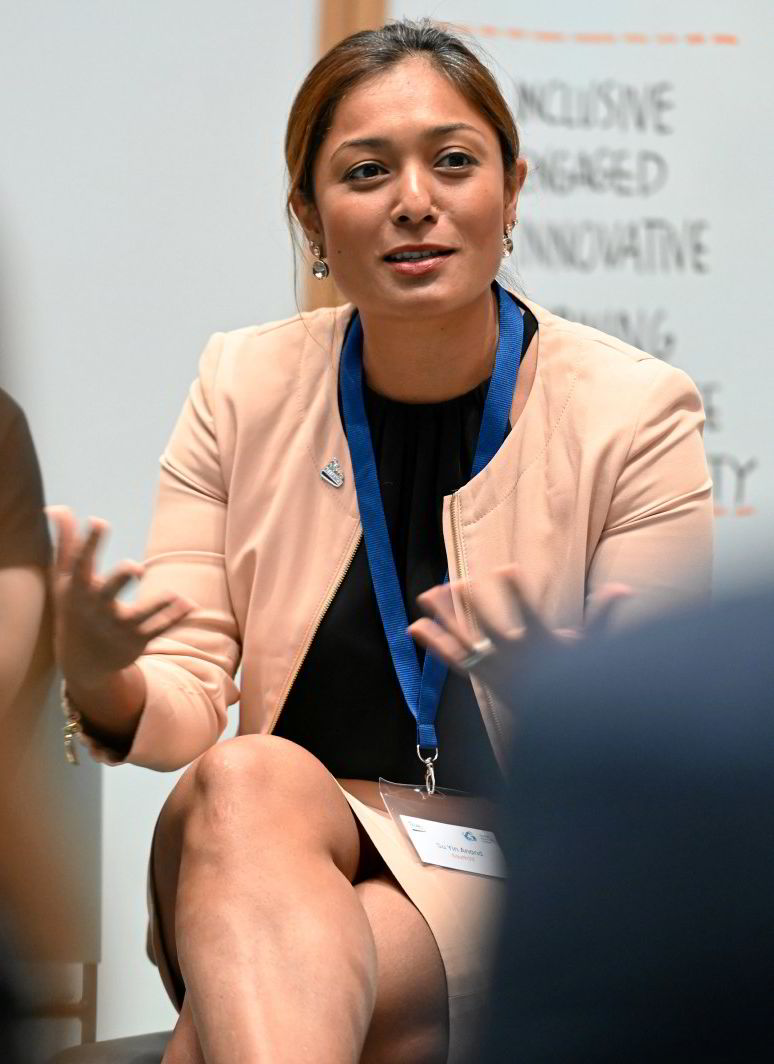
“The late Cecilia Eckelmann-Battistello once remarked, ‘I think it is women who feel inadequate in a man’s world more than men creating obstacles.’ This quote resonates deeply with me and aligns with the best career advice I have received, which is to speak up and be open about my ambitions.
“Through my career, I’ve learnt that when we are honest about our career ambitions, we gain clarity about what we want to achieve, which enables us to set meaningful goals and make informed decisions.
“More importantly, honesty about career ambitions fosters authenticity and self-confidence, which in turn validates our own worth and capabilities, enabling us to communicate our ambitions effectively, advocate for ourselves, and take calculated risks, leading to more career advancement opportunities.
“Being a woman in a man’s world does not mean that we need to behave like men, but we do need to be confident about our own capabilities and contributions, and own them.
“Change must start with the individual. It is only when each and every woman feels empowered that we can then contribute through collaboration and collective empowerment towards challenging societal norms to create a paradigm shift that affirms.”
Su Yin Anand is the former head of shipping at Australian charterer and miner South32.
——————
Amb. Nancy Karigithu, ambassador and special envoy for maritime and blue economy, Government of Kenya
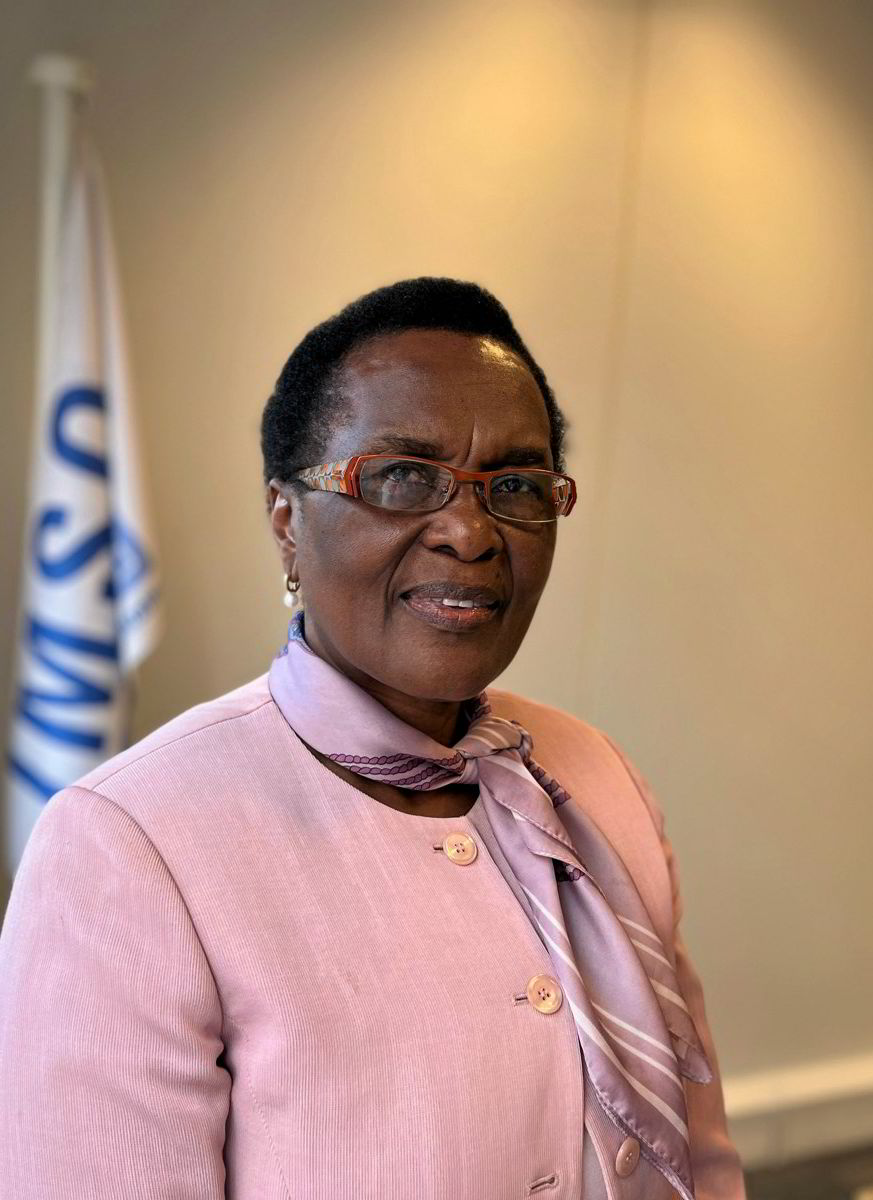
“Despite the promise of gender equality, as clearly stated in SDG 5 [Sustainable Development Goal 5 of the United Nations], progress towards this goal in the maritime sector has been very slow.
“Things are not changing as fast as we would like with the latest maritime labour reports from the International Transport Workers’ Federation and Bimco telling us that out of 1.89m seafarers globally only 24,059 are women. That means that half of 51% of humanity is represented by less than 2%, with 94% of that 2% female seafarers working in the cruise industry.
“In this context, therefore, it is fair to say that there is lots of room for improvement. Yet we have absolutely no shortage of talent and the leadership qualities that the industry needs among the female gender.
“With a predicted shortage approaching 89,000 officers in the next three years, we have our work cut out for us to ensure that we improve on that low, almost negligible representation of women in the sector.”
“Inspiring inclusion of women in the maritime sector is crucial for promoting diversity, equality, and innovation in the industry.”
Nancy Karigithu ran for election as the secretary general of the International Maritime Organization in 2023.
——————
Gitte Gard Talmo, president & CEO, Eidesvik Offshore
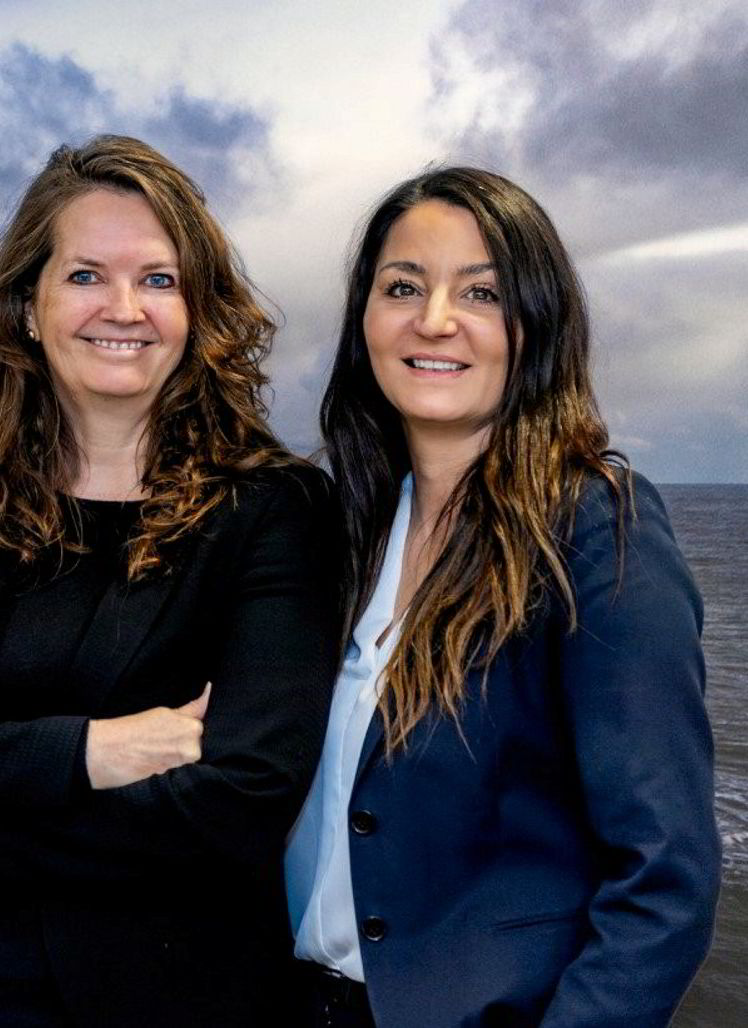
“The shipping industry has traditionally been male-dominated, but we see that significant strides are being made toward greater inclusivity for women. Mentorship programmes, leadership development initiatives, and flexible work arrangements are examples of initiatives gaining momentum.
“We know there are still barriers to overcome such as gender bias, work-life balance, and workplace culture. My viewpoint is that it is the responsibility of the management to create an environment where women feel motivated to contribute. I have been lucky to work in such an environment for over 20 years. I also believe the industry in general could be better at showcasing female role models in the shipping sector.
“Without visible examples of successful women and the many exciting career opportunities available, aspiring female professionals may struggle to envision themselves thriving in the industry.”
——————
Madadh MacLaine, founder and secretary general of the Zero Emissions Ship Technology Association (ZESTAs)
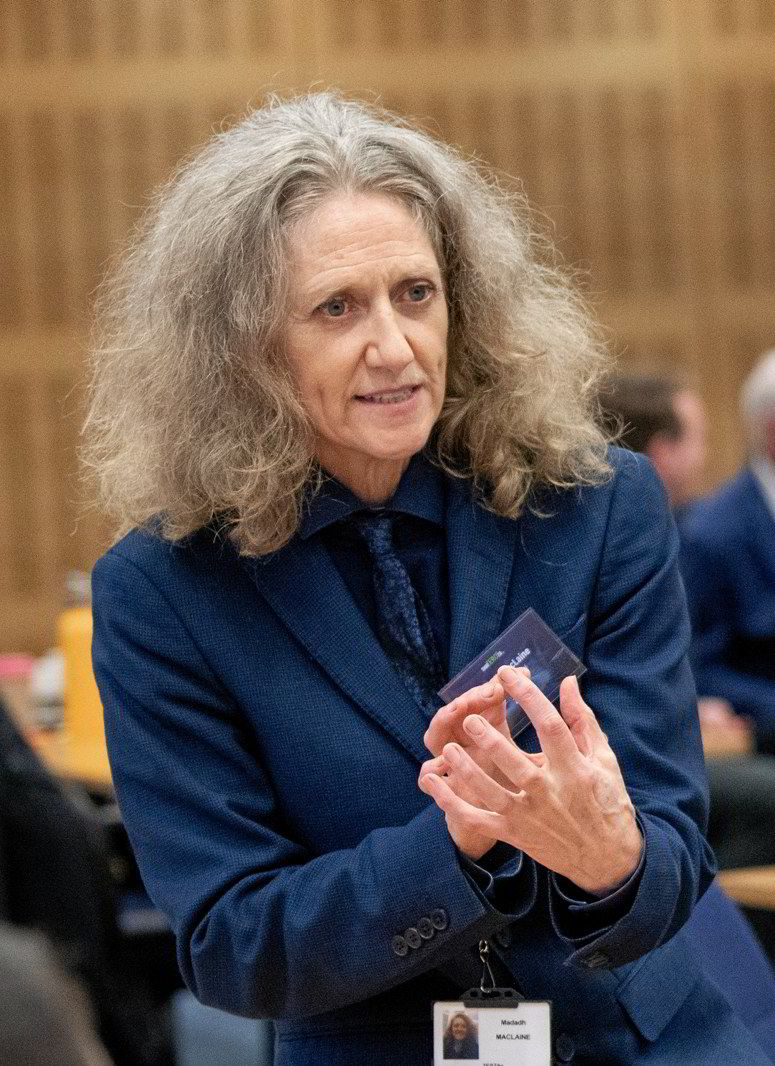
“Shipping, despite being an international industry, is a small world, and sometimes feels a bit like an old gentleman’s club along the Pall Mall: although they’ll let you in, they won’t necessarily listen to what you have to say.
“How often has it happened that I have posed a question, as secretary general and founder of ZESTAs, to have the male respondent ignore me and engage with my male Aryan-looking, (‘skin tone’ is another issue that seriously needs addressing) assistant? I could repeat a hundred similar — and worse — stories told by women colleagues.
“For change to occur, our male colleagues, first need to acknowledge that there is an issue, and second, begin to see us and listen to us.
“Arsenio Dominguez, our secretary general at the IMO, is facing this full frontal by stating that he will not join a panel that is not gender balanced. Brilliant! But how do we ensure that women are there in roles where they can contribute to discussions?
“Industry can play a massive role in supporting girls to pursue STEM but also open the door to women seafarers by assuring that their rights (and all seafarers’ rights) will be protected and upheld.”
——————
Diane Gilpin, founder and CEO, Smart Green Shipping
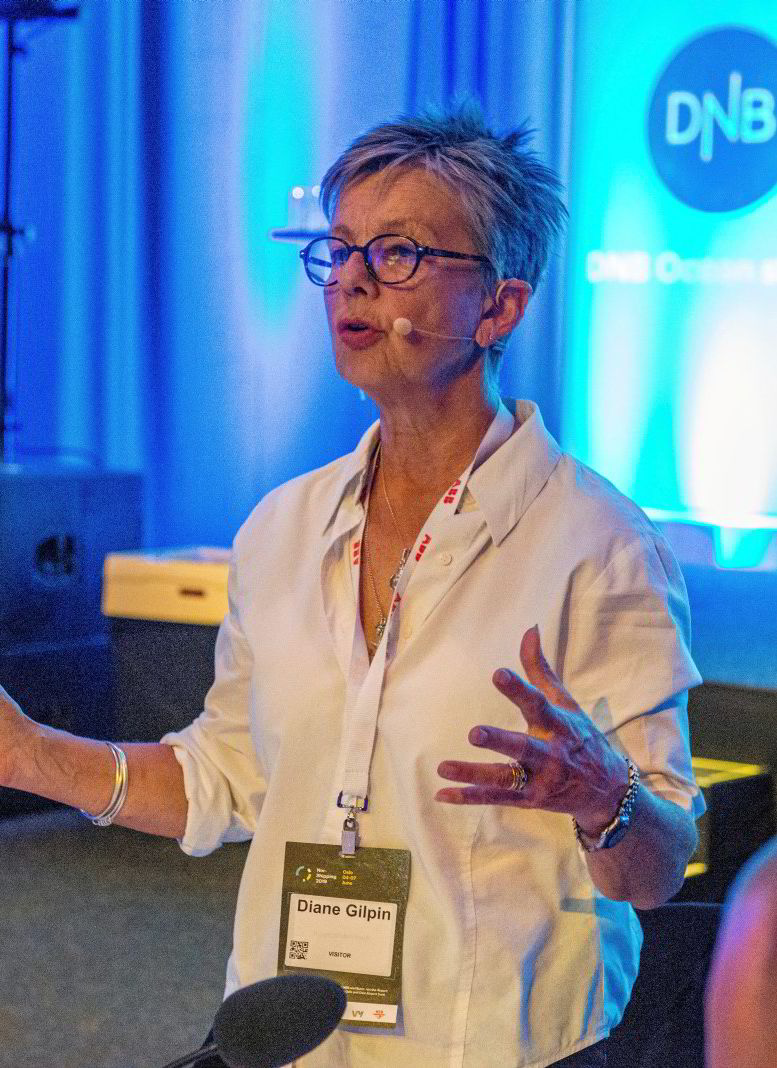
“The biggest issue I’ve experienced in raising finance for wind-assist technology is unconscious bias. I stress ‘unconscious’ — most men don’t even realise they are biased. Investors are missing out.
“Great emphasis is put on risk assessment so on a pure analysis basis you’d think investors would be influenced by the statistics. Businesses founded by women deliver twice the revenue per dollar invested than those founded by men. [BCG] yet when women business owners pitch to investors for early-stage capital, they receive significantly less, a recent UK government survey found that for every £1 of equity investment in the UK, just 2p goes to fully female-founded businesses.
“Investing in women-led businesses makes commercial sense — look at the data.”
——————
Tan Beng Tee, executive director of the Singapore Maritime Foundation
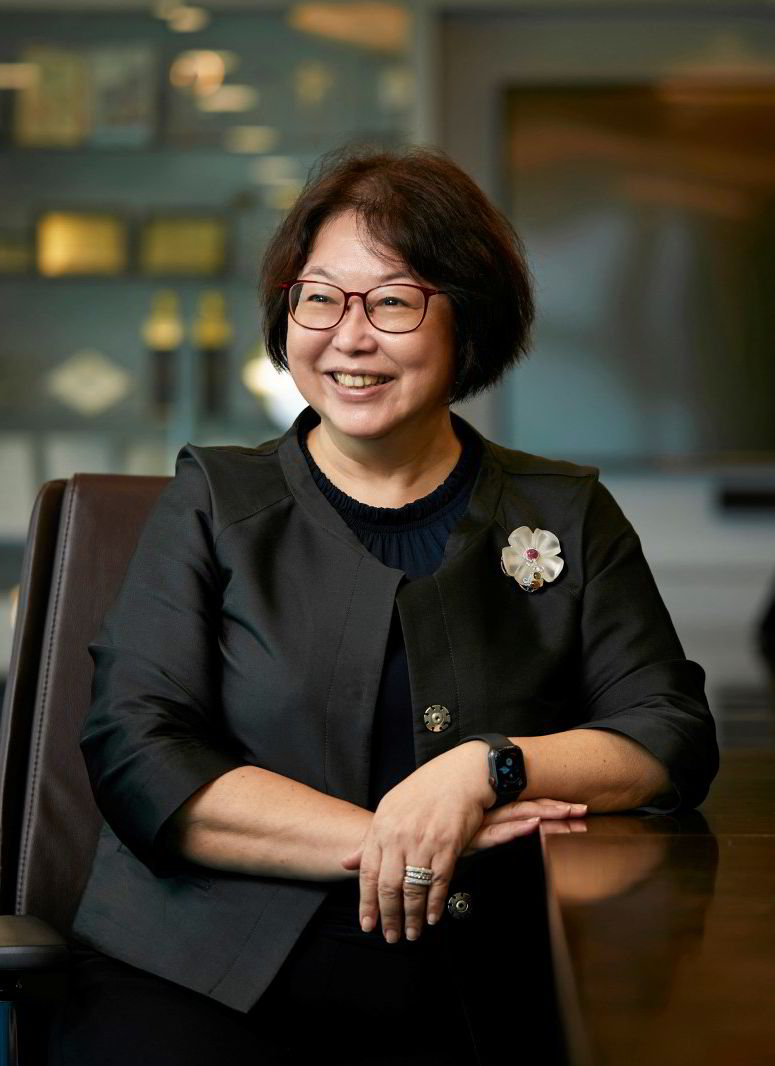
“On this International Women’s Day, I pay tribute to all women in the maritime workforce. It is truly awesome to see more women joining the industry with many becoming leaders. Over the past decades, we have made a mark for ourselves. Today, we are a vital part of the industry and will continue to make meaningful contributions.
“Going forward, the confluence of a cultural shift with a new generation joining the workforce and advances in technology spanning automation, AI, and robotics will allow even more women to fill diverse roles in the maritime industry.
“Such shifts and evolution require us to be constantly adaptive and ahead of the game. We will need to keep an open mind and be open to different perspectives as we are not an authority in all matters. It also calls for us to take a more creative problem-solving approach when faced with challenges.”
——————
Temi Binitie FICS, director of business development, The Seafarers’ Charity
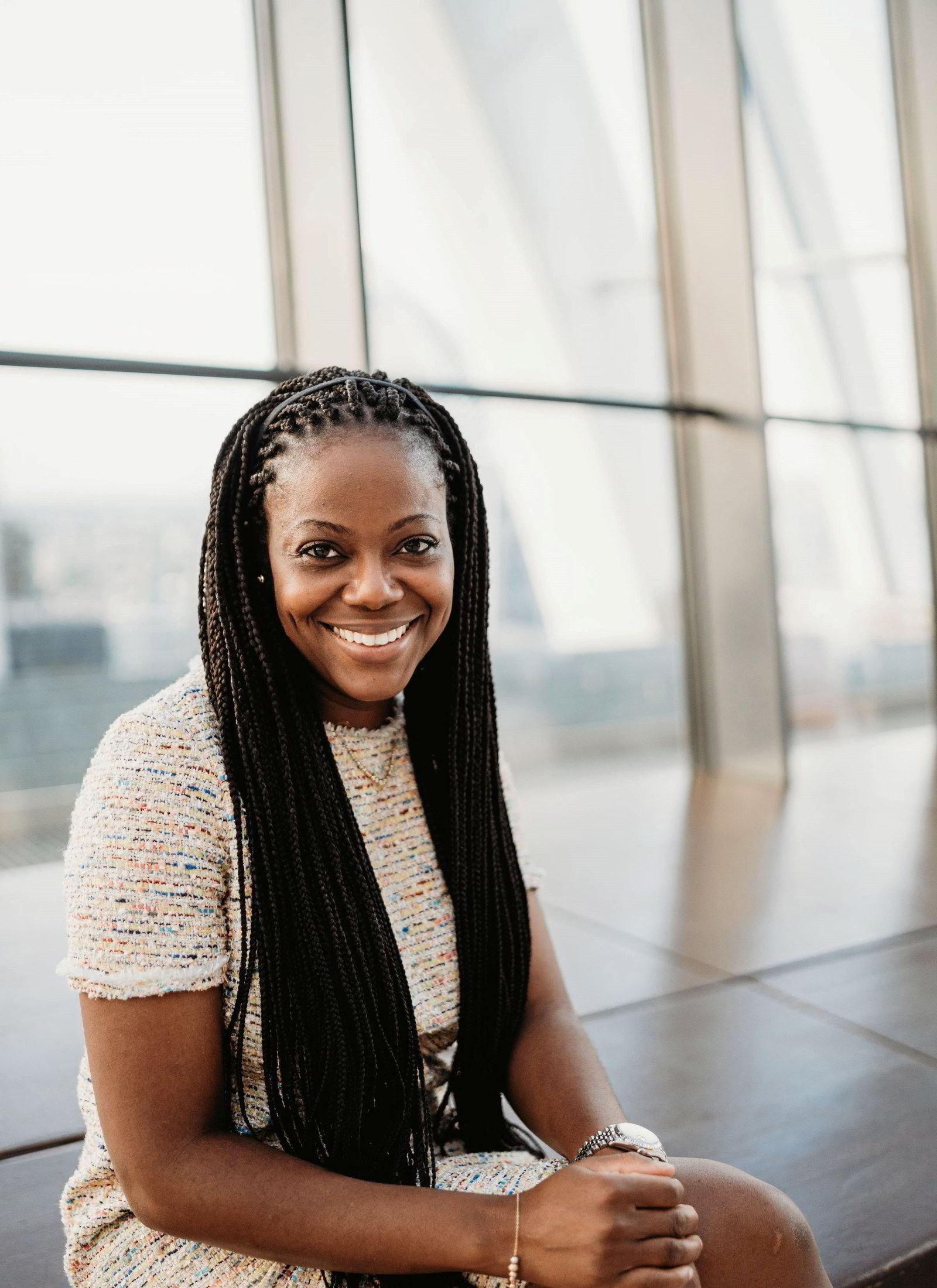
“According to data from the International Maritime Organization, women represent a mere 2% of the global maritime workforce, highlighting the lack of inclusivity in the shipping industry.
“This disparity is deeply rooted in the industry’s historical male dominance and nepotistic culture, which perpetuates biases throughout the maritime sector. To foster a more diverse and thriving industry, it’s crucial to break these barriers by promoting women into key leadership positions beyond just HR roles.
“Women bring valuable perspectives, lateral thinking, collaborative skills, and problem-solving abilities honed through navigating adversity, all of which can greatly benefit the shipping sector.
“Given the intricate and interconnected nature of the shipping industry, embracing gender diversity is essential for its long-term sustainability. In comparison to aviation and road transportation, shipping typically exhibits lower levels of female representation, underscoring the need to learn from the successes of other industries and leverage their strategies for greater inclusivity.”
——————
Krishna Ruparelia, head of operations for The Society for Gas as a Marine Fuel (SGMF), founder of WiGS — Women in Green Shipping
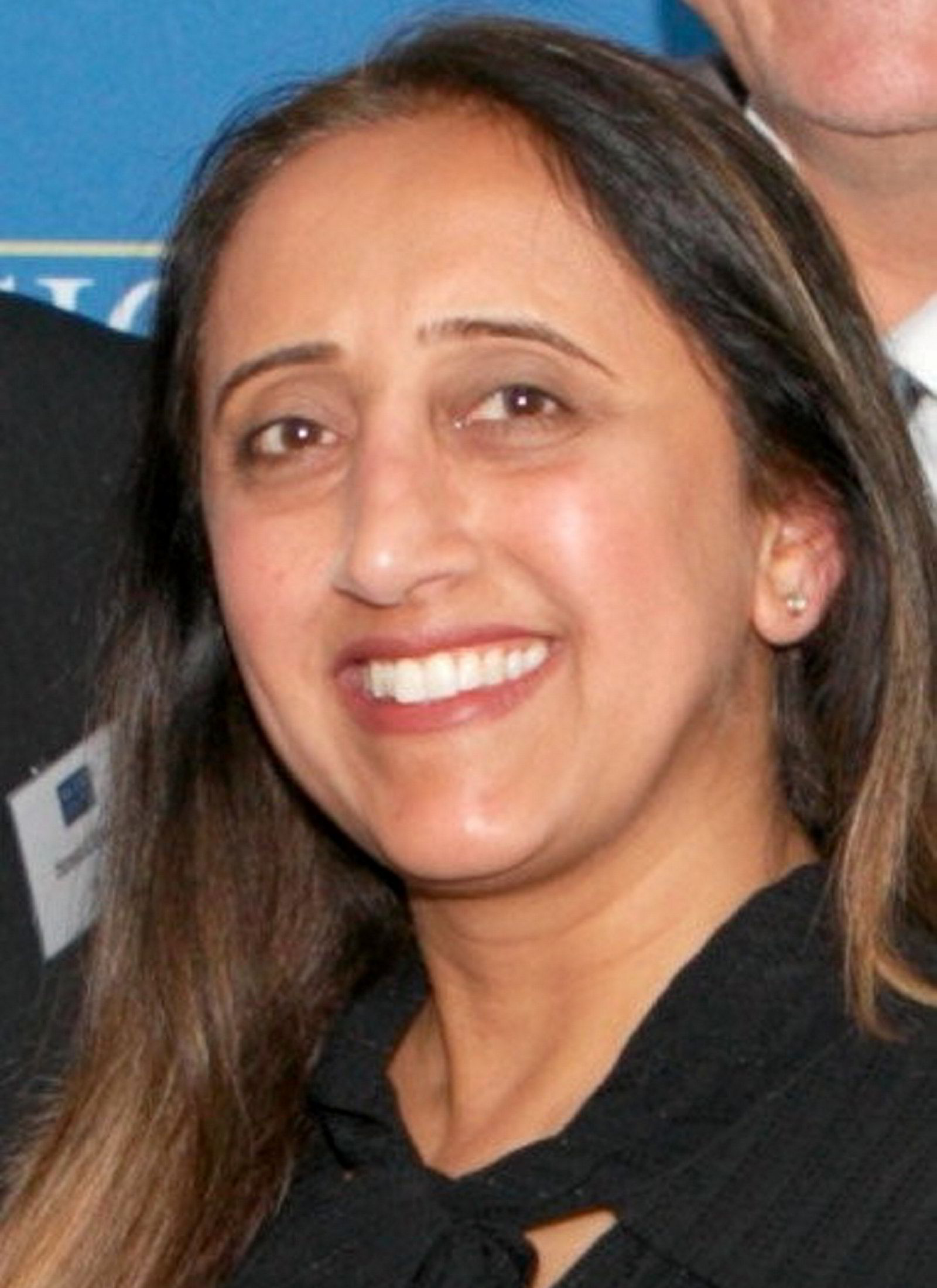
“I feel visibility and the lack of female role models is a major barrier for women to enter and advance within the sector.
“The Society for Gas as a Marine Fuel [SGMF] has taken proactive steps to address this through the Women in Green Shipping [WiGS] programme, our dedicated initiative aimed at promoting gender diversity and inclusion. The programme showcases the accomplishments of women in the industry, both as a source of inspiration and as role models for individuals.
“Through collaborative efforts with the WiGS community, we are implementing various initiatives to provide support and encouragement. This includes the WiGS working-together sessions and networking events, which create a platform for women to connect, feel supported in a safe environment, and mutually inspire one another.
“We are also looking at ways to encourage women’s participation in our activities to enable them to contribute their expertise in the development of our outputs. Our goal is to progressively enhance women’s participation each year until we reach our target of 50% across all our activities.
“SGMF is committed to creating a positive and empowering environment that fuels the success and advancement of women in shipping.”
——————
Sanjam Gupta, managing director of Sitara Shipping and founder of Maritime SheEO
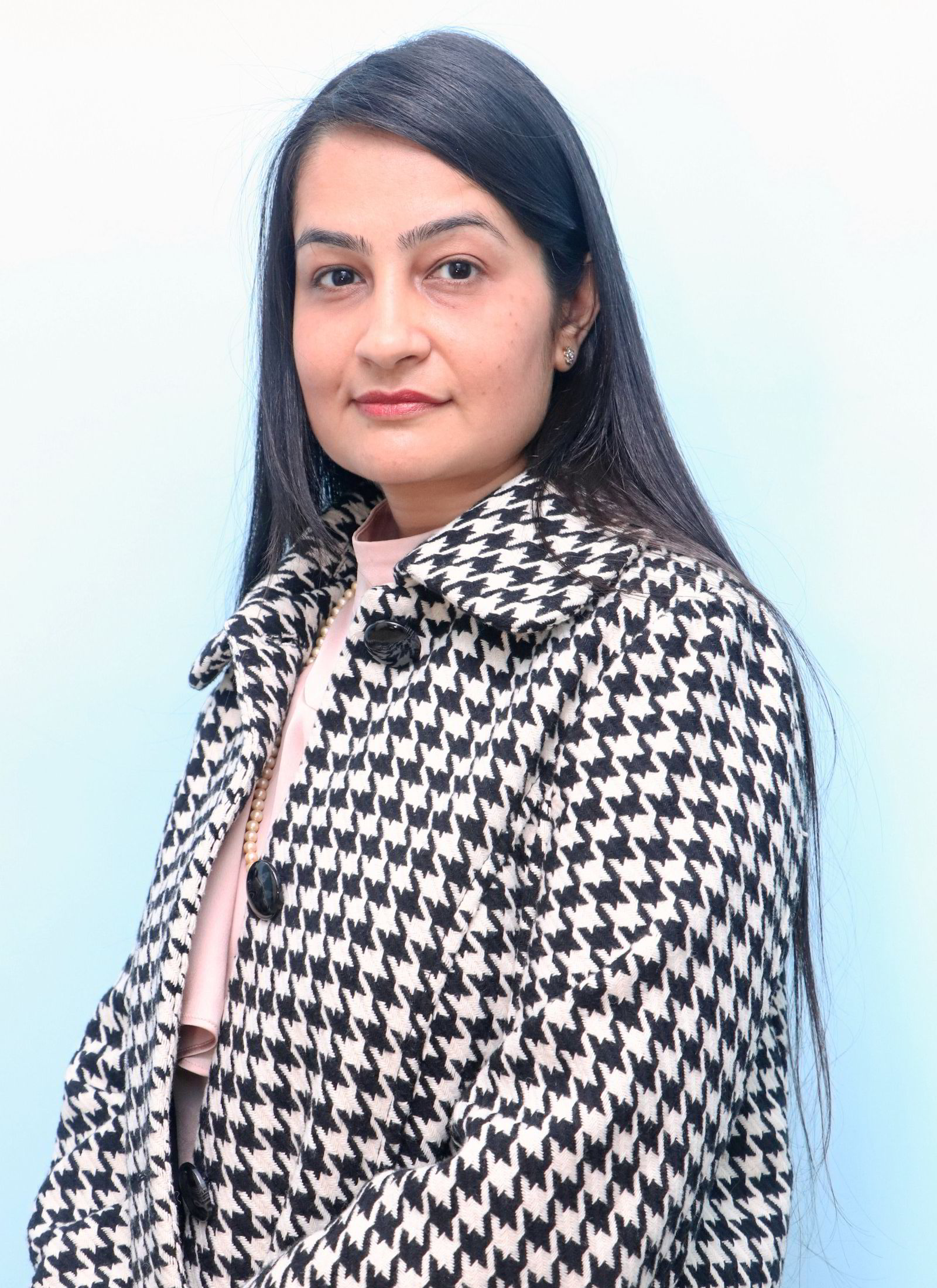
“The theme ‘Inspire Inclusion’ for this year’s International Women’s Day highlights the critical importance of fostering a more inclusive environment for women in all sectors, including the shipping industry. While progress has been made in recent years, there are still significant challenges that hinder the full participation and representation of women.
“Women remain significantly underrepresented in key roles within the shipping industry, particularly in leadership positions and operational roles. Deep-rooted gender stereotypes and biases can create a hostile work environment and limit opportunities for women to advance in their careers. Instances of gender-based discrimination, harassment, and unequal treatment can deter women from pursuing careers in the shipping industry.
“Firstly, we can implement and enforce policies that promote gender diversity, equity, and inclusion within maritime organizations. Then gender sensitisation programmes — to raise awareness about gender equality issues and promote inclusivity. Thirdly, we can establish mentorship programmes to support and empower women in the maritime industry. Most importantly, we can establish transparent reporting mechanisms to address and prevent instances of gender-based harassment and discrimination. Finally, to highlight and celebrate the achievements of women in the shipping industry to inspire future generations.”
——————
Bernice Yeoh, executive director of the Singapore Chamber of Maritime Arbitration
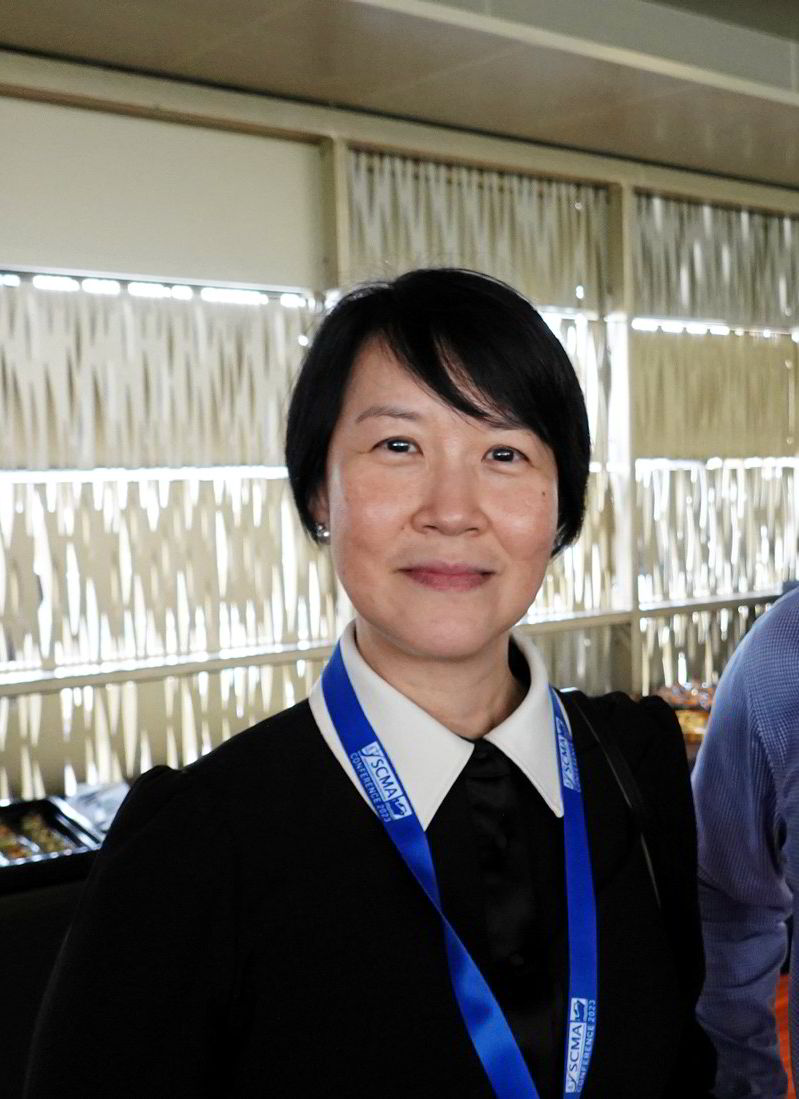
“In celebration of International Women’s Day, the Singapore Chamber of Maritime Arbitration [SCMA] seizes this opportunity to honour the ever-growing presence of women within the maritime sector, both onshore and at sea.
“Recognising that gender equality is a key pillar for a sustainable future, SCMA is committed to inspiring inclusion through encouraging the participation of women to present their insights at SCMA’s talks and seminars.
“We are proud that our SCMA Secretariat is composed predominantly of women who are responsible for matters ranging from operations and finance to marketing and legal, aside from managing their other roles as mothers, wives, and daughters.
“As the maritime industry moves towards a sustainable future, it is important for the industry to strive even harder in paving the way for the inclusion of women through remaining open to diverse perspectives and views, as women do bring unique strengths to the workforce.”
——————
Corina Song, partner at law firm Allen & Gledhill and vice chair of the Singapore Chamber of Maritime Arbitration
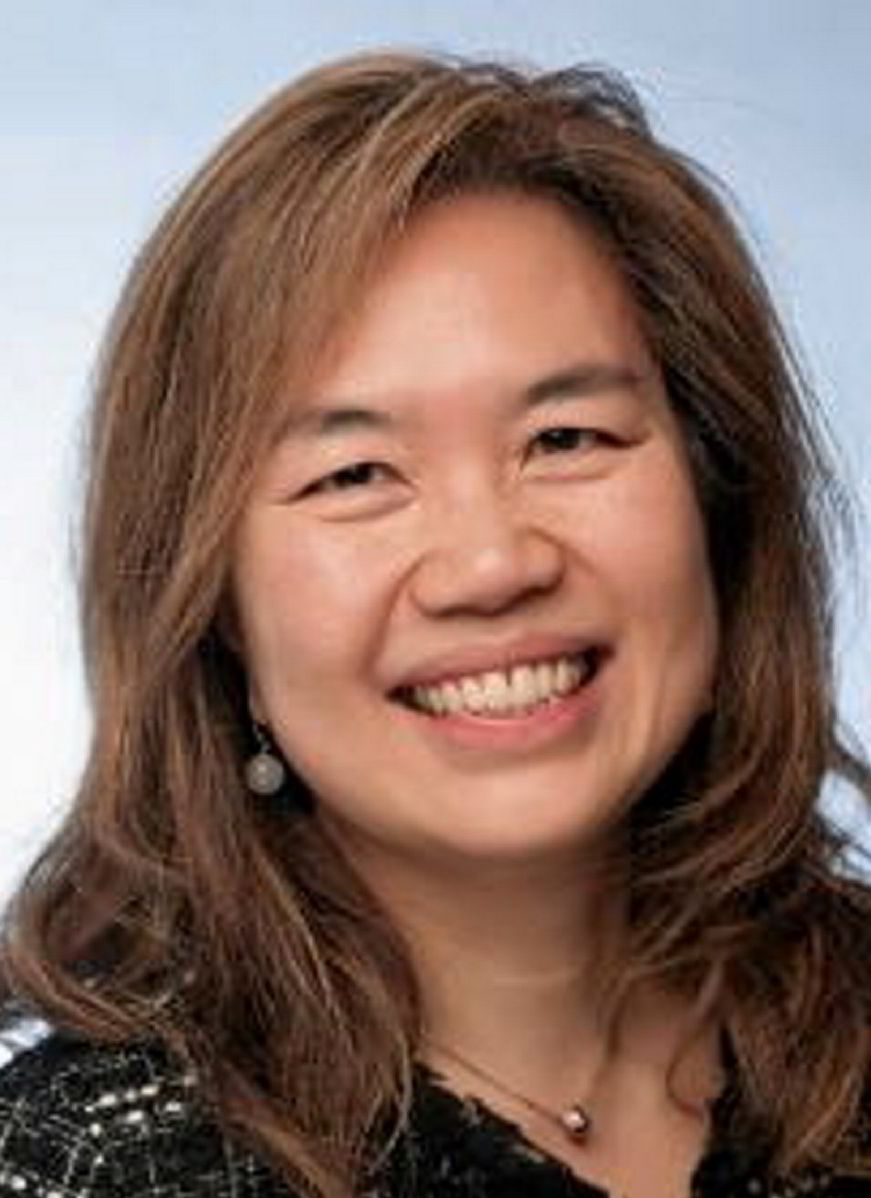
“The maritime and legal sectors, particularly in disputes, are traditionally male-dominated. The percentage of female representation, especially at the more senior levels, remains small. Policies which require organisations to include, or at least consider, female representation at board or other senior levels, would be useful.
“When I began my career 30 years ago, female shipping lawyers were a rare breed. The landscape is today very different. Many more female lawyers are keen to explore shipping but the attrition rate remains high, especially after four to five years. This is mainly due to the pressures of juggling a demanding career and family life. It is important to learn how to prioritise and manage your own time.
“I count myself lucky to have been surrounded by many successful women in shipping, who have inspired me to stay the course. It is important to have a role model(s) or even better, a mentor.
“To all women out there, instead of waiting to be included, go out and actively seize whatever opportunities you can find! Happy International Women’s Day!”
——————
Katy Womersley, group operations director, Stream Marine Group
“The shipping industry has made great strides in improving its inclusivity of females. We are seeing more females interested in seagoing careers as deck, engineering and ETO officers. This has been massively helped by the awareness generated by Maritime UK, WISTA and other organisations, which is a positive.
“At Stream Marine Careers, we do a lot of work with schools and colleges, encouraging young people to take up STEM subjects [science, technology, engineering and mathematics]. We need to introduce females to other industries before they embark on the more traditional ‘female’ career paths and promote the shipping industry as a welcoming and sustainable career.
“It is also important that we educate the current crew workforce in embracing females in their team and appreciating the attributes they bring to working on a vessel, to which end I welcome the recent move from the IMO in developing training requirements to combat bullying and harassment in the maritime sector.”
Katy Womersley is a recipient of the UK Merchant Navy Medal for her work in seafarer training and promoting diversity in the sector.
——————
Vilde Lyngstad Hageselle, environmental advisor at Grieg Green and chair of YoungShip Oslo
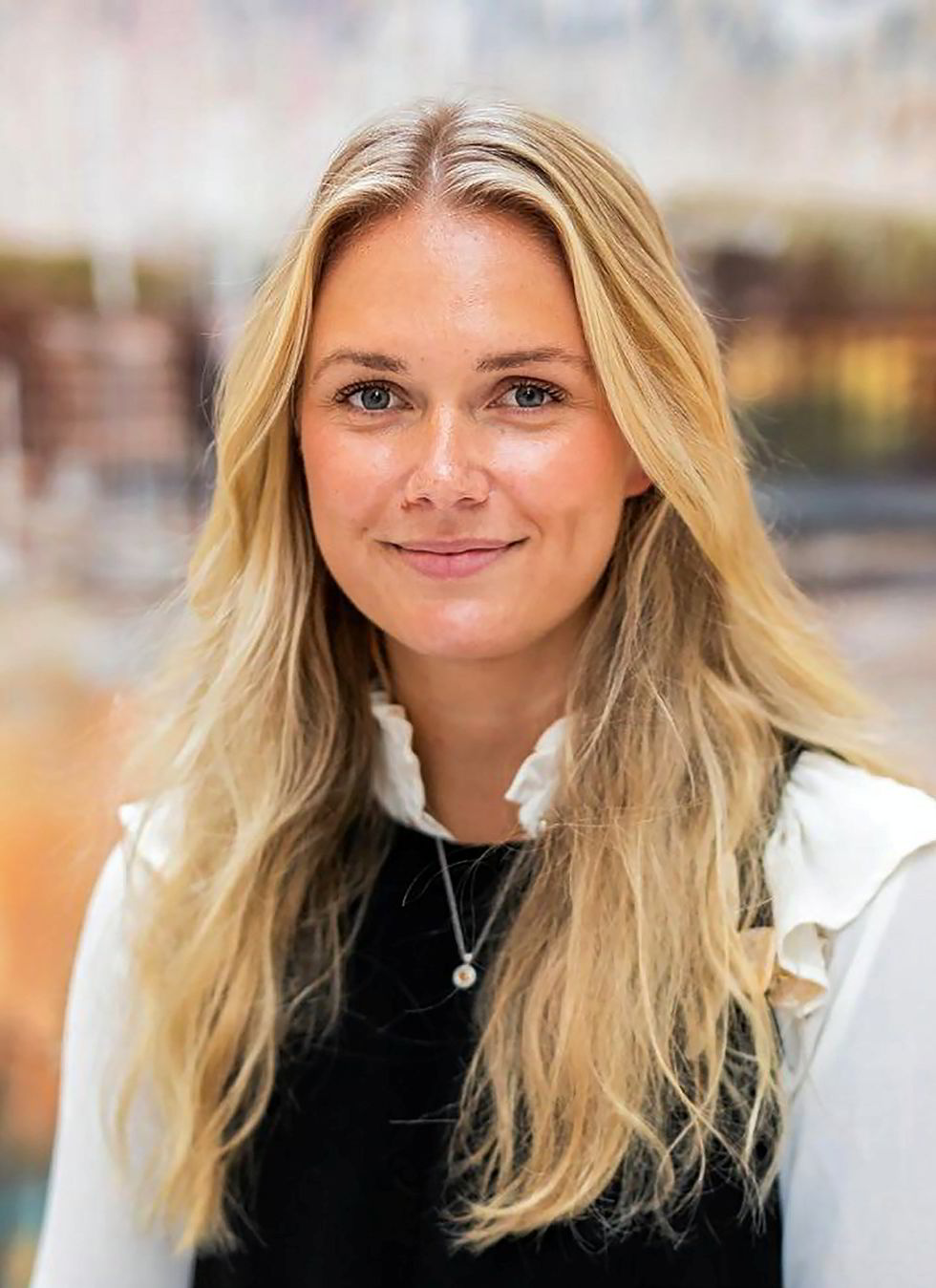
“In my view, the shipping industry is becoming increasingly more inclusive and diverse. As for my employer, Grieg, equality is a priority, reflected in our organisation, which represents 51% females. The presence of female role models has been an important driver for me and has motivated me to further develop my career in the maritime industry.
“Despite my positive impression of the status of inclusion in the industry, I acknowledge that challenges persist; With gender imbalance amongst crew and in leadership positions, as well as biases in hiring practices. To address these concerns, companies must continue prioritising their diversity, equity, and inclusion efforts. Examples include promoting the industry as an attractive industry for females from various educational backgrounds and providing career and skills development opportunities for women.
“I, personally, have had various mentors throughout my career, who have offered me valuable guidance, helped me navigate through challenges and broadened my professional perspectives. Overall, while progress has been made, proactive measures are key to creating a truly inclusive and diverse industry.”
——————
Jasmin Fichte, managing partner of law firm Fichte & Co, Dubai
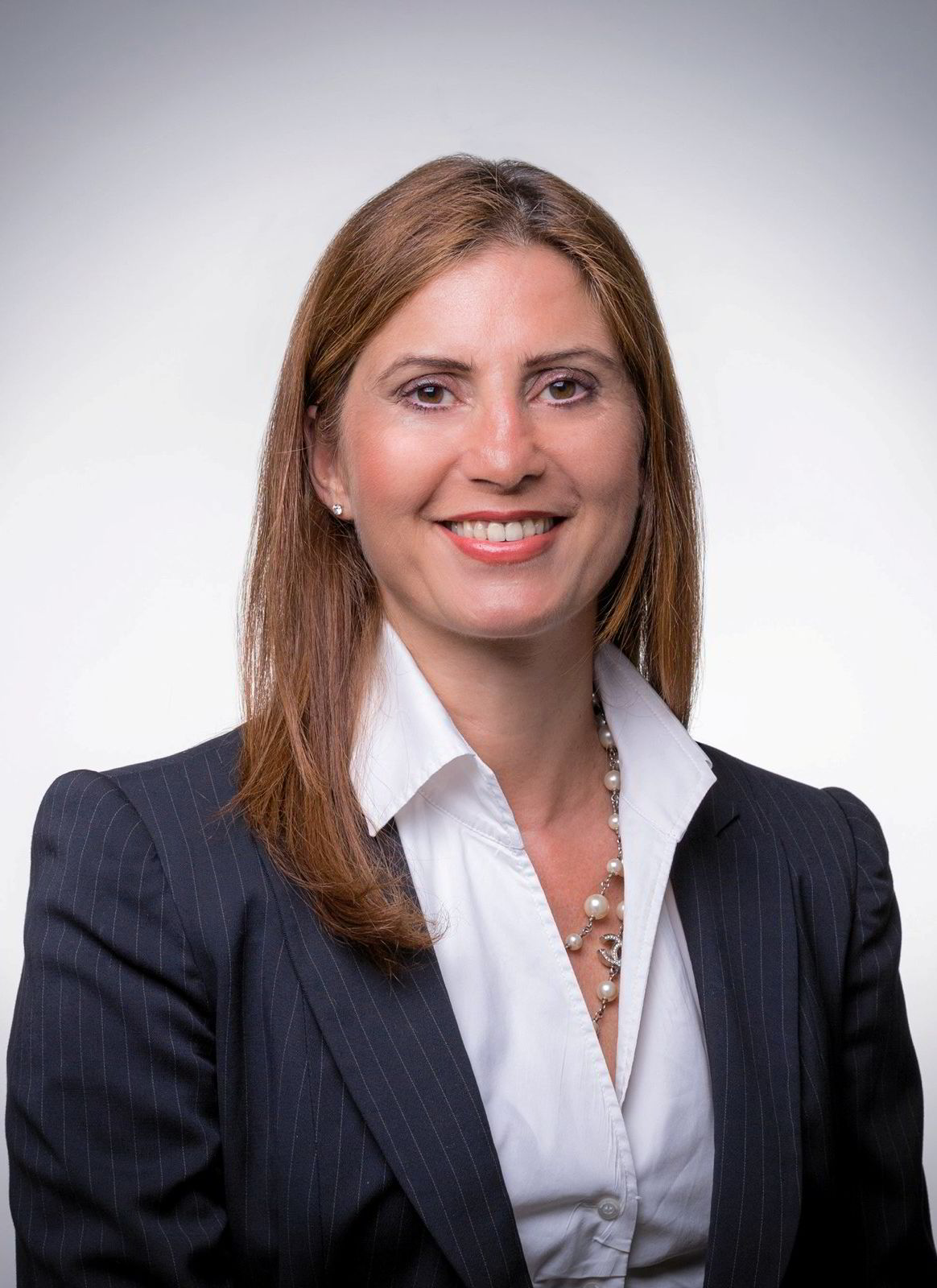
“The shipping industry, traditionally dominated by men, has seen an increased focus on inclusivity and gender diversity in recent years. While there have been positive strides towards welcoming women into the industry, significant barriers still exist, hindering their full participation and advancement. The percentage of women working in the maritime industry remains low, estimated at around 2% of the total workforce.
“To attract young male and female talent, the industry needs to reflect the changes that have been made in major companies, addressing issues such as recruitment, training, and workplace equality to create a more welcoming environment for women.
“Investments in gender-specific infrastructure, including improved accommodation and healthcare facilities on vessels, aim to address the practical needs of women working in offshore maritime roles.
“I have seen a lot of changes over the past 30 years though. In my days, it was still allowed to ask women in an interview ‘What will you choose, family or your career?’ Maternity leave was the end of your career and women had no role models in management positions.
“These days there are a number of outspoken women in the industry such as Greek shipowners Maria Angelicoussis, Angeliki Frangou and Semiramis Paliou. But also women like Hessa Al Malek, direct advisor to the UAE minister; Danae Bezantakou, CEO of Navigator; Katerina Stanzel, MD Intertanko; Sanjam Gupta, MD of Sitara Shipping; Ann Fenech, the first female president of the Comite Maritime International.
“These women make an impact as they promote diversification on the highest level and hopefully more women will rise through the ranks!”
——————
Patrizia Kern-Ferretti, chief insurance officer at Breeze and chair of the nominating committee of the International Union of Marine Insurance
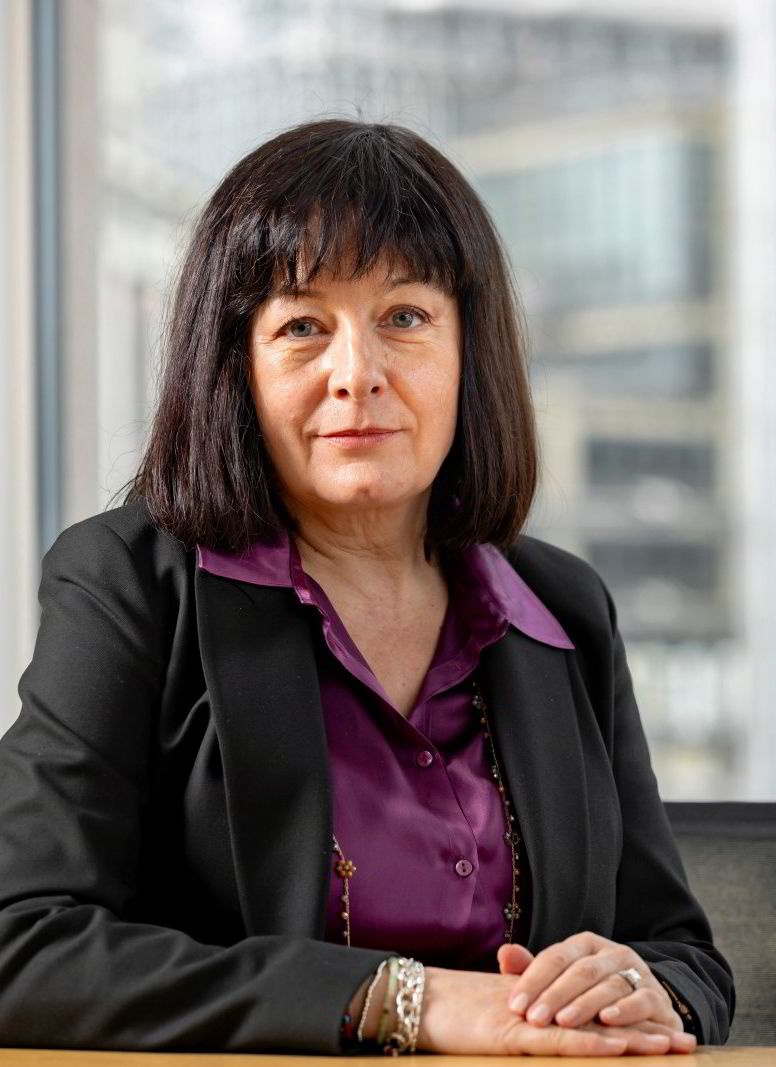
“It’s truly incredible to witness the positive transformation in our industry regarding diversity and inclusion. When I joined 30 years ago, I was very often the only woman in the meeting room. Luckily it has changed! The presence of more women in marine insurance brings diverse perspectives, experiences, and talents, which ultimately leads to better decision-making and innovation.
“As the industry becomes more inclusive, it not only benefits current professionals but also inspires future generations of women to pursue careers in marine insurance. By breaking down barriers and promoting equality, the industry becomes more reflective of the world we live in and harnesses the full potential of its workforce.
“IUMI’s commitment to promoting diversity is a testament to the progress being made, and it’s encouraging to see these positive changes taking place. As we continue to witness the transformation first-hand, we have to remember that we all play a role in it. Our contributions, experiences, and perspectives are important in shaping a more inclusive and prosperous marine insurance industry.”
——————
Guven Kale, chief clinical officer and clinical psychologist at Mental Health Support Solutions
“In the shipping industry, gender biases have led to significant underrepresentation of women in leadership and technical roles. To tackle this issue, it is essential to implement targeted recruitment strategies, mentorship programmes, and leadership initiatives. In addition to this, women often feel isolated and excluded in the workplace due to a lack of support networks.
“To overcome this, tailored mentorship programmes and support networks that provide guidance and resources can be established to help women navigate their careers in the industry. It is also critical to implement a zero-tolerance policy for harassment and discrimination to create a safe and inclusive environment. By actively addressing these barriers, the shipping industry can foster a more inclusive environment, ensuring that women have equal opportunities for advancement and contributing to a more diverse and dynamic workforce.”
——————
Claudia Paschkewitz, group director of sustainability, diversity and inclusivity, Columbia Shipmanagement
“I’ve been in the maritime industry for 35 years and seen lots of positive developments. It’s still an ongoing process. I do still hear young women say: ‘The maritime industry is not inclusive enough for us; we still don’t see many women in management positions.’ Let’s begin to listen to the younger generation and take appropriate action. We cannot afford to lose young talent to other industries.
“The biggest barrier to a career at sea is still the compatibility with family life. I believe highlighting career opportunities ashore, for example, may help to attract more women into the maritime market.
“There are still some barriers in the technical area. We must move away from stereotyping professions into genders and change the mindset to: ‘Anything is possible.’
“Changing mindsets is key to opening up opportunities and creating genderless roles — and being more open-minded to balancing family responsibilities.”
——————
Rebecca Hughes, global director of crew management, V.Group
“Throughout history, the shipping industry has been one of the most male-dominated industries in the world. Whilst this remains the case — as men account for 98% of the 1.89m seafarers globally — women are making their mark, breaking through conventional barriers and gender stereotypes.
“To attract more women to the maritime industry, we need to increase awareness of the existence of opportunities at all levels from cadets to senior leaders, and to provide improved mentoring and support to develop the successful leaders of the future.
“Gender stereotypes have no place in the maritime sector, one which offers endless opportunities to excel and, from experience, we know that if women across the industry embrace those opportunities, they can really make an impact.
“A workplace where gender bias is raised openly and without confrontation, and where soft skills training is offered to cultures that are less accepting of women should be the norm. Increasing gender diversity welcomes different ideas, perspectives and experiences that ultimately benefit the entire industry.”
——————
Christina Liviakis, business development director at American Ship Repair and president of WISTA USA
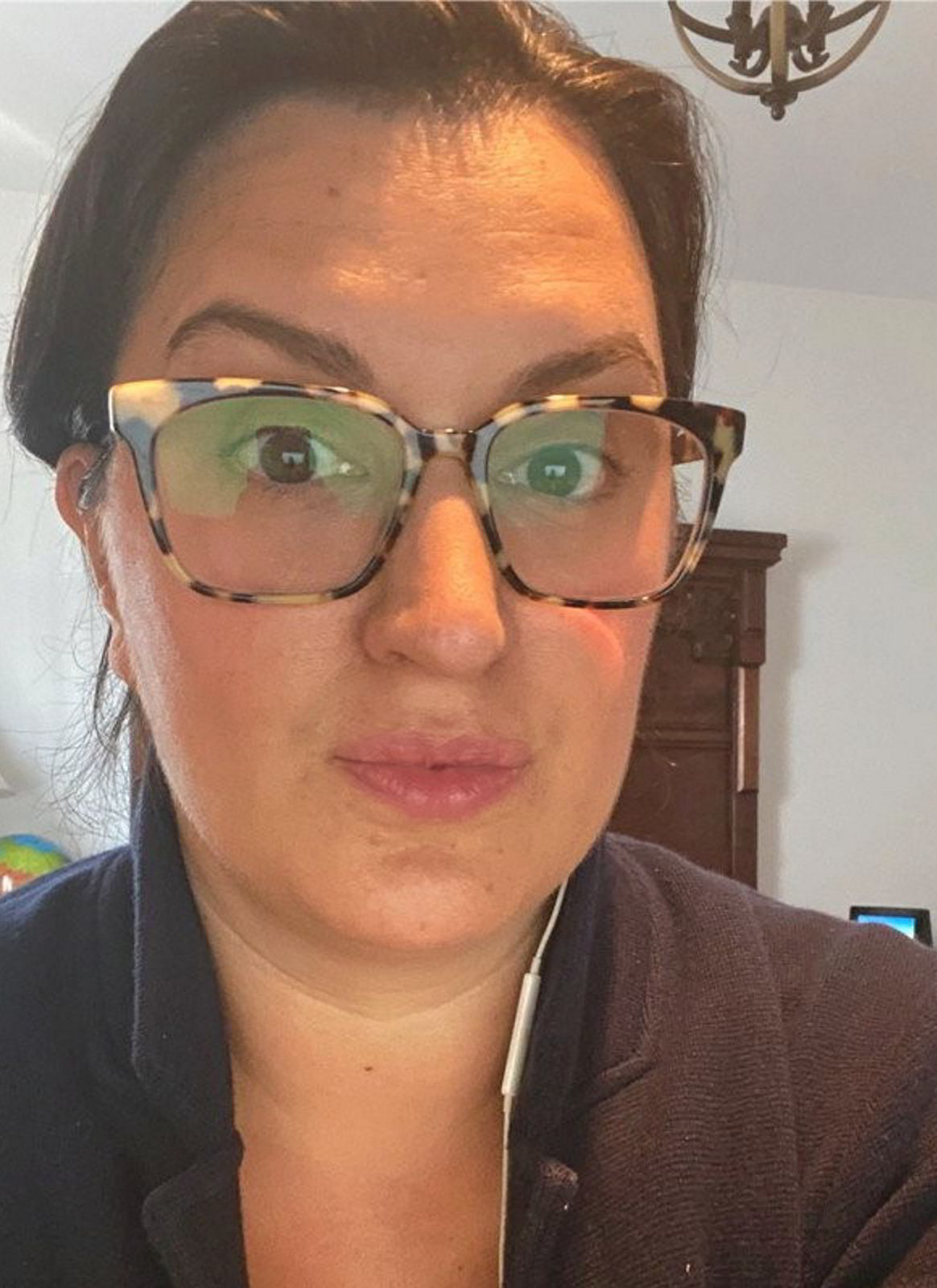
“Women like Admiral Linda Fagan, Lois Zabrocky and Captain Kate McCue are shining examples of how far we have come. However, our industry is not monolithic and we see that some parts of the industry are more diverse than others. We can look to sectors like law, insurance and even the cruise industry for positive examples of inclusivity. The march towards decarbonisation is being led by female entrepreneurs and scientists. But there is still much to be done. As the shipping industry faces an ever-looming workforce shortage, we know how important it is to reach a more diverse pool of talent and attracting and retaining female seafarers is an important part of that solution.
“In general, shipping has a visibility problem, especially in the US. WISTA USA has been actively reaching out to schools and universities to combat that. They say: ‘If you can’t see it, you can’t be it.’ Our hope is that young women will not only be excited by the industry but be able to see themselves in it when meeting our members.”
——————
Maria Theodosiou, managing director of maritime procurement company GenPro

“We see that the industry is becoming more inclusive, and a rising tide of women are breaking through traditional barriers, not only securing seats at the table but also leading discussions. This is achieved with the continuous efforts of organizations such as the IMO, WISTA and YoungShip which promote gender equality through policies, educational programmes and mentorship opportunities.
“To overcome the barriers of bias, and stereotyping we need to focus our efforts on those entering education and, young professionals. Listening to their challenges and providing them with tools, guidance, and diverse role models is essential in nurturing an inclusive sector. One in which labels are obsolete and individuals are acknowledged for their capabilities and values.
“To further support the efforts we look to sustainability, where companies are increasingly compelled to report on diversity and inclusion, holding them accountable for their corporate culture, practices, and policies.
“The journey towards social justice and economic fairness is intrinsically linked to a sustainable strategy.”
——————
Sue Henney, head of marketing at Idwal
“Although there has been some significant progress in recent years, the shipping industry still faces challenges in creating an inclusive environment for women. Barriers include traditional gender biases, lack of female role models in corporate boardrooms, work-life balance challenges and limited access to opportunities.
“To help overcome these hurdles, I believe that mentoring and networking are crucial. Pairing experienced women with aspiring professionals can provide guidance, support, and valuable insights into navigating the industry. Additionally, fostering networks where women can connect, share experiences, and access resources can help break down isolation and build confidence.
“Creating a culture that values diversity and actively promotes gender equality through policies and initiatives is essential for a more inclusive shipping industry. I believe we are on the right path but still have much to do to make this an industry that is attractive and dynamic for bright young women.”
